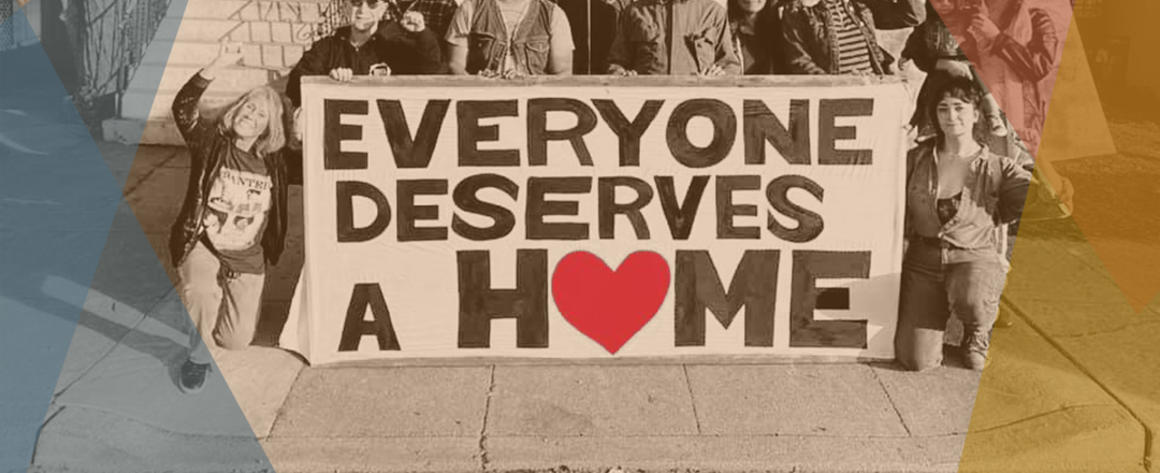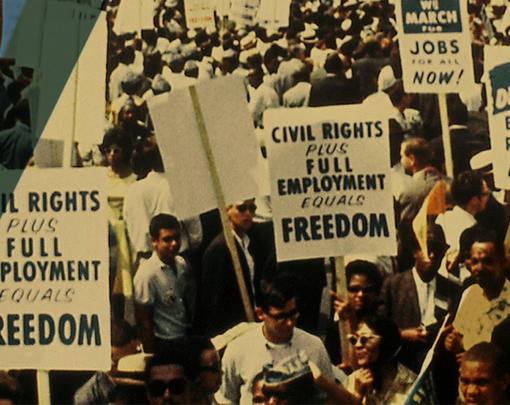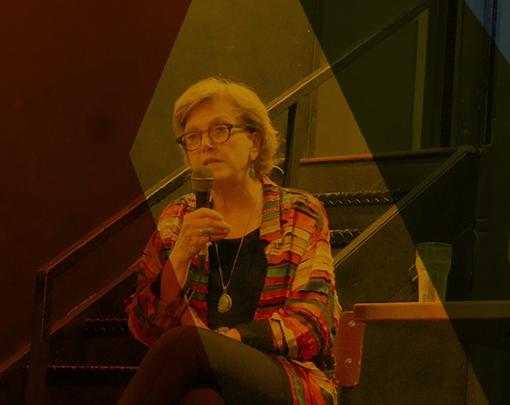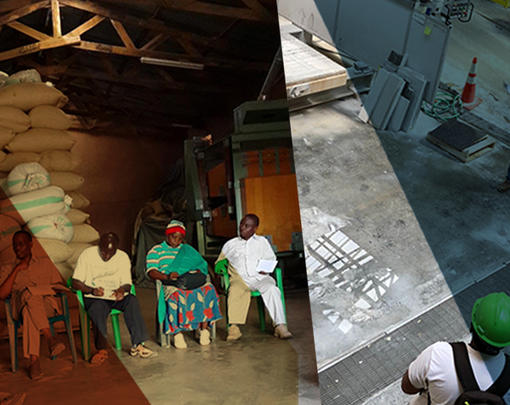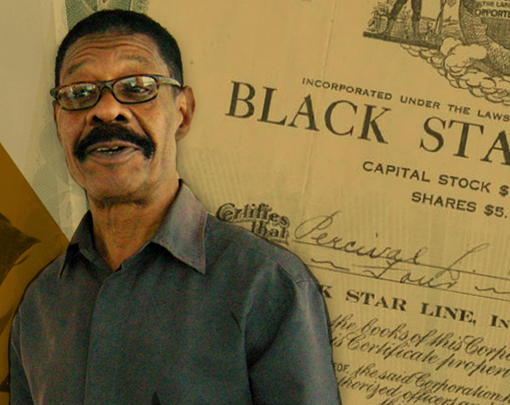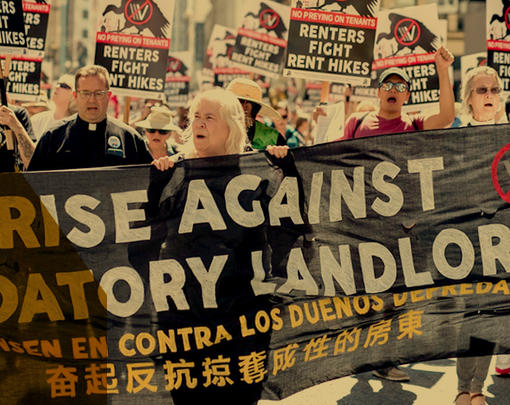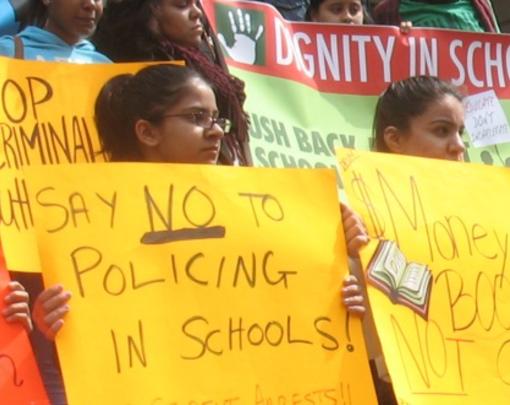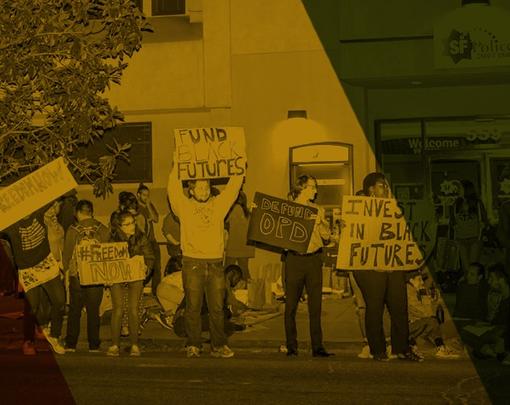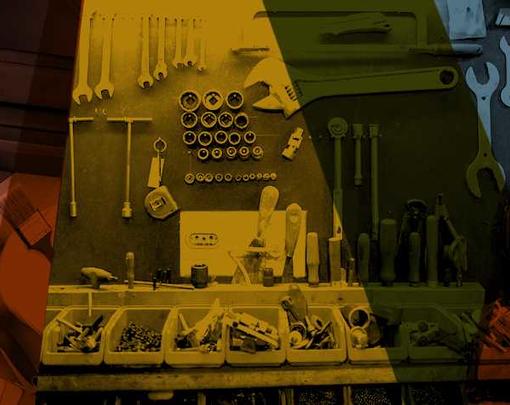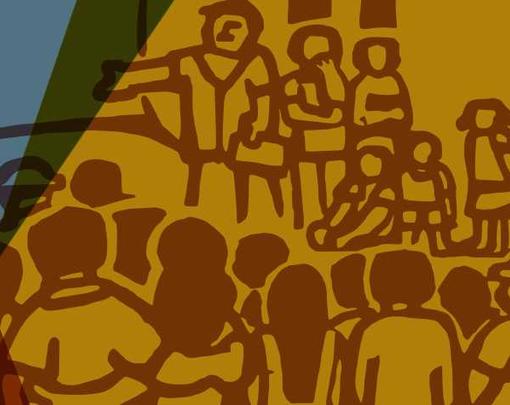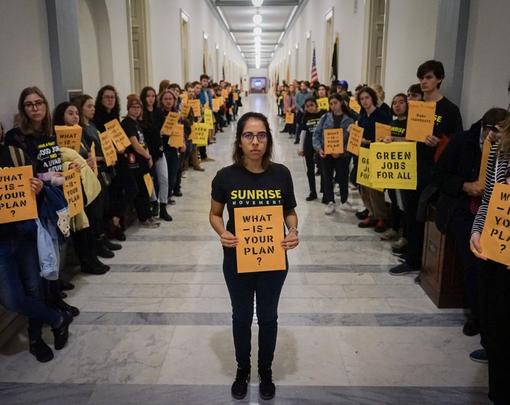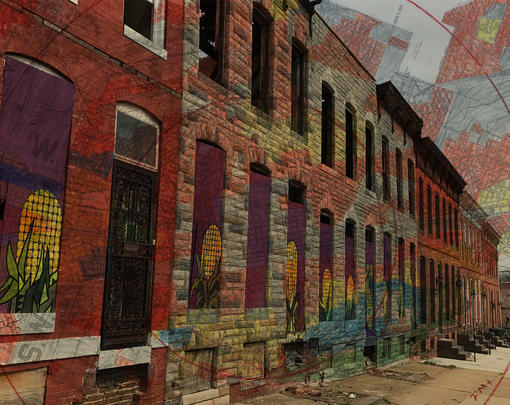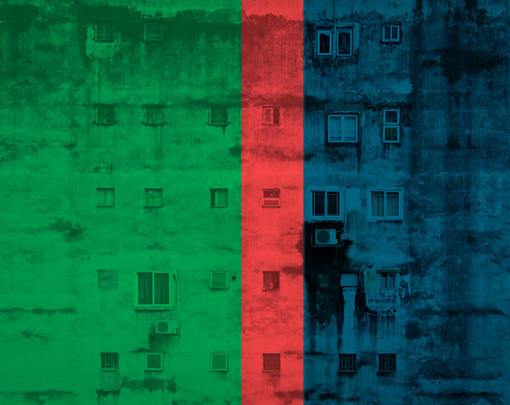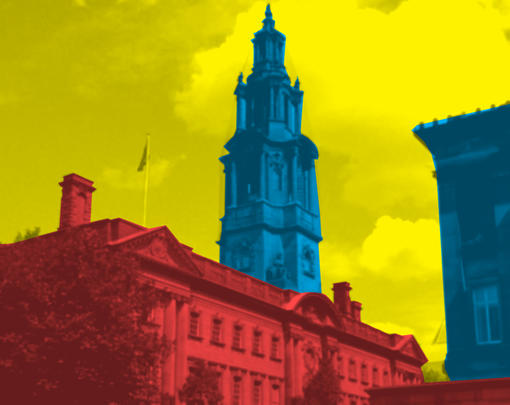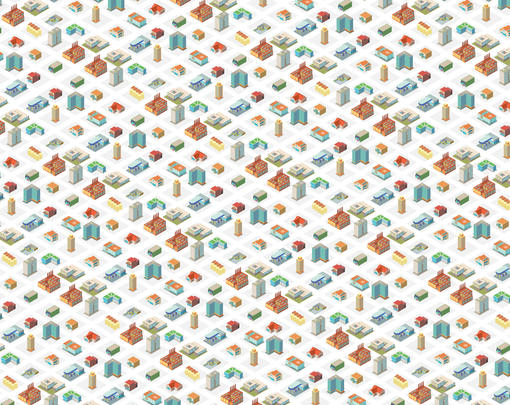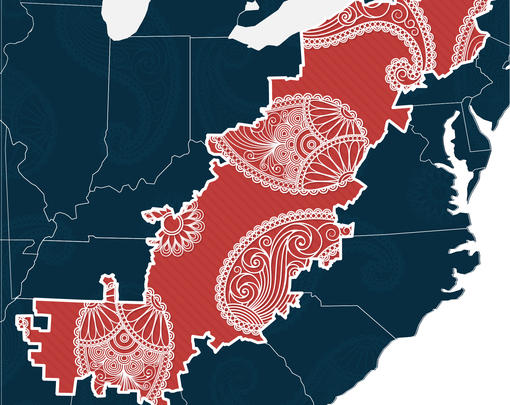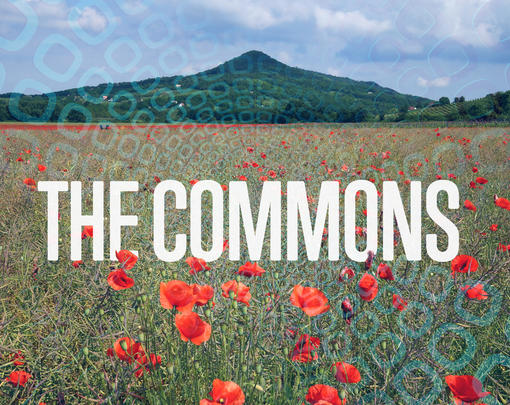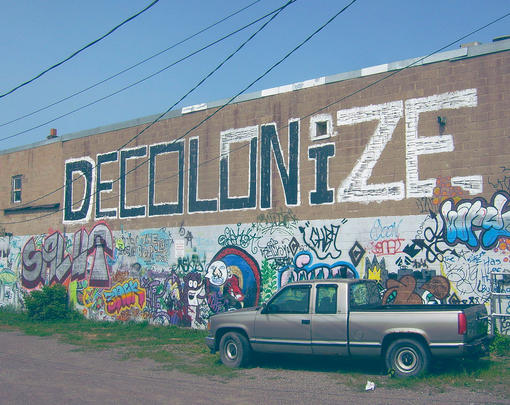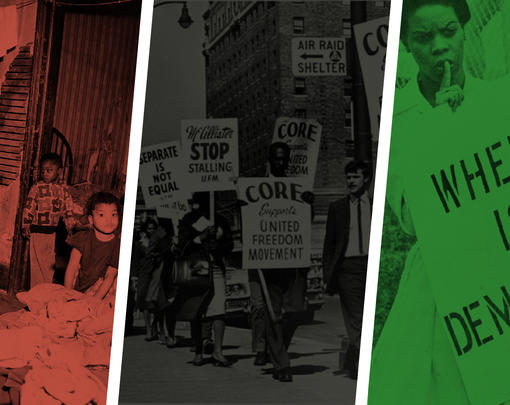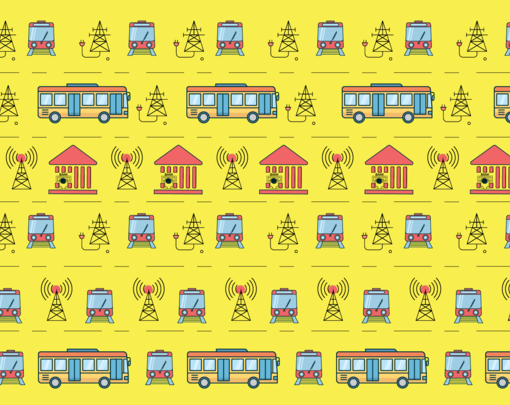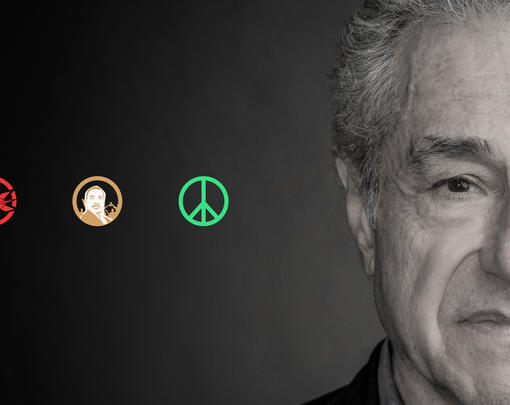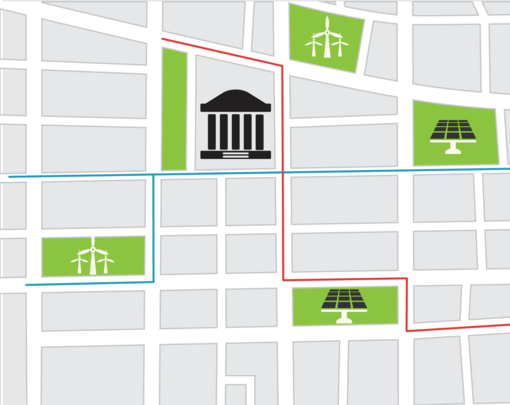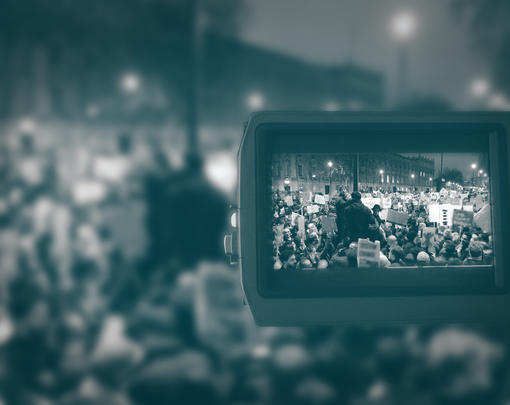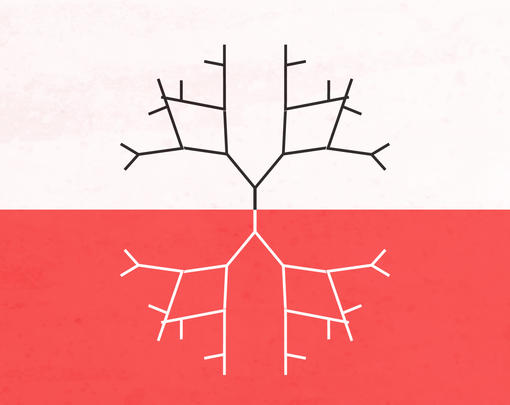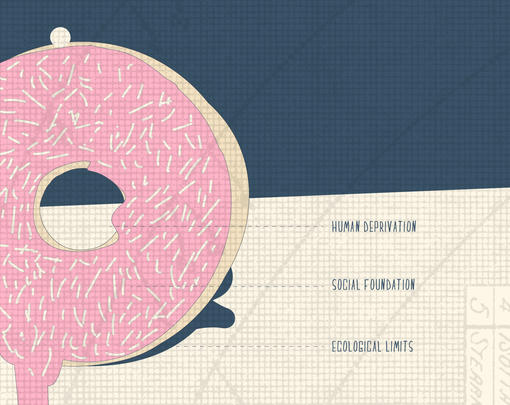As a nationwide fight to make housing affordable to all intensifies, we talk to Dominique Walker, one of the leaders of Moms 4 Housing, about how her group is working to get a home controlled by a real estate speculator into the hands of a community land trust. Also, Next System Project researcher Juliana Broad gives both a historical and forward-looking perspective on the effort to actualize housing as a human right.
The Next System Podcast is available on iTunes, Soundcloud, Google Play, Stitcher Radio, Tune-In, and Spotify. You can also subscribe independently to our RSS feed here.
Isaiah J. Poole: I’m Isaiah J. Poole, and welcome to the Next System Podcast. As the nation struggles with an affordable housing crisis, there are a few places where we are seeing possibilities for radical change, where direct action meets with transformative policy solutions. One of those places is Oakland, California, and it starts with a group of mothers who decided to fight back against the forces of displacement. That group is Moms 4 Housing, and one of the members of that group is Dominique Walker. Dominique, thank you for joining us.
Dominique Walker: Thank you for having me.
Isaiah J. Poole: Dominique, first of all, tell me a little bit about yourself.
Dominique Walker: My name is Dominique Walker and my pronouns are she/hers and I am a native of Oakland, California born and raised here. My family has been here since the 1950s. They moved here to escape terror in the rural South, and my family’s been here for generations and I’ve been an activist since the age of 14. I helped co-found the high school I graduated from and I moved away to go to school in Mississippi and I moved back home in April of 2019. My community was no longer there and I became homeless with my two small children. I have a one-year-old and I have a five-year-old.
Isaiah J. Poole: What was the difference between Oakland when you left it and Oakland when you came back?
Dominique Walker: There was a huge difference. When you think about coming home, you’d think about, you know, catching up with folks who you hadn’t seen in a long time, your neighbors, you know, your community, seeing kids and everyone—and no one was there. Everyone has been displaced. The block I grew up on, there’s only two families on that block that I know from when I was younger. Folks are either displaced hours away or they’re on the street.
I’m from East Oakland, but I’ve noticed how hard gentrification has hit West Oakland. Folks are moving into the community and are not friendly and neighborly—like they build these high fences and these security systems, as if they’re scared to live in the neighborhood and they call the police on our churches and our drum circles and us barbecuing where we’re allowed to. Folks are moving in and trying to change the culture and the sense of community that was already there. And I’ve seen that a lot, even on Facebook before I even moved back home, that this was happening. But to see it in person was overwhelming, to see four to six thousand people on the street and children on the street.
I became homeless when I moved back. I was staying with family members, commuting over an hour and a half every day back and forth to work. And it was very stressful. And when that didn’t work, I was staying in different hotel rooms, and it’s not a safe environment to have your children in. Through organizing, I met up with other moms and we wanted to come up with a solution. We wanted to find shelter for ourselves and our children, but we also wanted to highlight the harm that was caused in Oakland during the foreclosure crisis—and now with speculation and gentrification—and we want to reclaim those homes owned by speculators back into the hands of the community.
Isaiah J. Poole: So that led you to a house on Magnolia Street in Oakland. Tell me about Magnolia Street.
Dominique Walker: Magnolia Street is a main street. It’s a beautiful block. Folks mow their lawns; their houses look very nice, and this was an eyesore on the block. On this particular block, 29th and Magnolia, there were four vacant properties on that one corner. When we would organize and ask folks how they feel about homelessness, neighbors would point to all of the empty homes. So we know that there’s not a scarcity of housing. There’s four empty homes for every one homeless person.
We wanted to highlight speculation. This house in particular was owned by a company called Wedgewood—which is composed of five different companies. They all play a big part in mass displacement, displacement of people in so-called ‘vulnerable communities’. We don‘t want speculators like that, who are just for profit. We want land back in the hands of the community. It shouldn’t be held and hoarded for profit when there are folks sleeping on the street.
Isaiah J. Poole: So, tell me about the day that you decided to take over this house.
Dominique Walker: It was a beautiful day. The community came out in full support. They helped us move into the property. We had to get the outside pressure-washed. We had to install a water heater. We actually made it a home, and folks call us squatters. I don’t think we were squatters—we paid bills in the home: water, the gas, electric bill, things like that. And we made it a home; the community helped us to make it a home.
Isaiah J. Poole: So the reaction from Wedgewood, tell me about that.
Dominique Walker: There was no reaction initially until we gained a lot of public attention and then they hired a PR firm and Sam Singer to represent them throughout this process. They didn’t want to acknowledge us; they wouldn’t meet with us. It just shows the power of the people—when we organize, that we win. We put enough pressure on the city and on Wedgewood to be able to have negotiations. Now we’re in negotiations to purchase the home through the Oakland Community Land Trust.
Isaiah J. Poole: How did you connect with the land trust?
Dominique Walker: The organization I worked for, ACCE, works with the Oakland Community Land Trust…
Isaiah J. Poole: And ACCE is…?
Dominique Walker: Alliance of Californians for Community Empowerment.
Isaiah J. Poole: Okay. So you connected with the Oakland Community Land Trust and you began to negotiate with Wedgewood—tell us the rest of the story.
Dominique Walker: We are finalizing everything. We’re just going back still, in negotiation, with the numbers and we’re very hopeful and we’re very pretty confident that we will win—and we believe we will win.
Isaiah J. Poole: Well, that’s great. Another interesting thing that seems to have emerged out of that confrontation was the submission of legislation that would give tenants the opportunity to purchase properties that are being sold. Tell us about that, the Tenant Opportunity To Purchase Act.
Dominique Walker: Yes. They will give the tenants the first opportunity to purchase. And we’re expanding that to also include nonprofits and land trusts. We’re committed to making housing permanently affordable. And we also inspired Berkeley to pass TOPA as well. We have been from the beginning saying that this is a movement that has been catching fire and inspiring folks all over the world and we will continue to fight and organize until housing is recognized as a human right.
Isaiah J. Poole: So, this has been sort of a game-changing experience.
Dominique Walker: Yes.
Isaiah J. Poole: When do you think since the negotiations are continuing, I know you may not be able to answer this question with any sort of precision, but when do you think the deal with the land trust might be completed?
Dominique Walker: I think it would be pretty soon.
Isaiah J. Poole: And when the purchase is complete, the mothers who are working with you, what will happen to your group?
Dominique Walker: We haven’t fully decided, but we want that house on Magnolia Street to be our headquarters, to be our organizing grounds and to become a resource in our community.
Isaiah J. Poole: Now I know that there are lots of news stories about housing costs in the Bay area and people I think have a sense that housing prices have gone out of reach for a lot of people. But as a person who has experienced this directly, explain to me the severity of the problem,
Isaiah J. Poole: It’s alarming, and it should alarm everyone. Like the living wage that you would have to make to afford a one-bedroom, market-rate apartment, you have to make $40.88 an hour. There’s not a lot of people making it and our minimum wage here is only $15 an hour. So it’s, it’s very unbalanced. It’s very hard for folks to be able to pay rent. And then the whole application process is this scam. You have to pay for each application you put in for housing. So that’s a cost. And then you have to do a credit check. That costs. And you have to do first and last month’s rent. It’s very unreachable for the average person here.
Isaiah J. Poole: And it’s sobering to hear that even at $15 an hour, which we, a lot of us have been fighting for as a living wage that, that doesn’t begin to help you in terms of being able to afford a place to live.
Dominique Walker: No, at $15 an hour you can’t afford the rent here.
Isaiah J. Poole: So what would you say would be the kinds of policy solutions we would need to match the problem?
Dominique Walker: For the United States to recognize housing as a human right. That’s what we aim to do. The United Nations already recognizes housing as a human right. We need the United States to do that as well. That would help end homelessness. But we also we’re going to keep doing direct actions and working on policy and grassroots organizing until there is no homeless.
Isaiah J. Poole: Last question: What do you see yourself and Moms 4 Housing doing over the next year?
Isaiah J. Poole: Oh, changing policy, becoming a resource in our community and continuing this movement for housing.
Isaiah J. Poole: Okay. Dominique Walker. Thank you very much. We’re now speaking with Juliana Broad, a writer and researcher for The Next System Project. Welcome to the podcast.
Juliana Broad: Thanks for having me.
Isaiah J. Poole: You wrote on The Next System Project website about the Moms 4 Housing action in Oakland as a part of a movement that is happening around the country around affordable housing. Tell us a little bit about that.
Juliana Broad: Sure. So the piece was trying to look at what kinds of strategies that communities and individuals impacted by what is largely referred to as displacement and gentrification are using to combat that. And one of the interesting things about the Moms 4 Housing case is that it really in a snapshot kind of captures a lot of the different moving parts of both the strategies that people are using as well as the underlying structural issues that people are trying to fight back against.
We can get more into that specific case, but one of the things that I think is important to recognize is that what is called gentrification and displacement is sometimes derided in casual punditry as something that’s—you can spend days reading think pieces by people saying that, “Oh, gentrification, displacement, it’s not actually as bad as you think,” or “Oh, no, it’s not actually happening.” Of course, if you spend a minute listening to people like Moms 4 Housing who have experienced homelessness or housing insecurity, you know that’s total BS. And it is happening. It’s also widely documented. There’s a very healthy body of scholarship that looks historically at racist housing policies and how they have unfolded over decades and really centuries in the United States, in particular. So given that displacement and gentrification are buzzwords, I think it’s really important to unpack those terms, recognize that there’s a lot of different issues that are involved in those processes—the histories of redlining, exploitive financial practices, things like that, and also a lot of different strategies that people are using to address those structural issues. So that’s what the piece is trying to do. And obviously that’s a lot of different people and organizations including The Next System Project and The Democracy Collaborative are doing that, that work as well to kind of raise up these stories about what folks are actually doing.
Isaiah J. Poole: Exploitative financial practices as well as racial discriminatory practices such as redlining, I think, are very key here. I’ve heard the argument that, well, neighborhoods change all the time. You know, a neighborhood that was once Irish then becomes German and then becomes Jewish and then becomes Black—that this is sort of the natural cycle of neighborhoods. But this is not what we’re talking about. We’re talking about specific systemic practices that are driven by racism and exploitation.
Juliana Broad: Racism, as it is played out in housing and land policies as well as financial practices, has a long history in the US, from the displacement and continued settler colonialism of Indigenous communities through the present day. And it’s really well documented as a historical practice that has been going on and continues to go on in various iterations. So I think it’s about always having a healthy skepticism towards anything that’s “natural,” you know, “it’s natural for communities to change.” The ways and the forces that have caused those changes have been well-documented.
One book that is really great is Richard Rothstein’s “The Color of Law,” which talks in really great detail about the federal, state and municipal practices that have colluded with both the real estate industry and financial industry in excluding Black and Brown communities from getting bank loans and federal loans for housing. Kanga Yamada Taylor at Princeton has also written extensively on how the Federal Housing Administration and how policies have systematically excluded and incubated poverty in Black communities in the US. So this isn’t new. There’s a very healthy body of research that demonstrates that what could be seen as just natural—you know, shops close and there’s going to be a new deli where there used to be a coffee shop, or whatever—you wouldn’t say it’s healthy for, you know, a Chase bank to open up on the corner catty-cornered from another Chase. You know, there’s certain things that we can identify pretty easily as being changes that aren’t going to benefit a community. When it comes to Black and Brown communities in particular in the United States, there are many different forces that have colluded, both private and public, our government policies, to force people out of neighborhoods.
Isaiah J. Poole: The other thing is captured, I think, in the specific model of the company that owned the house that Moms 4 Housing had occupied. It’s a company called Wedgewood Properties, and what they do is that they go into communities; they buy so-called distress properties; if there are tenants in that property, they push those tenants out. Then they do a little bit of repair on a house and then they put the house back on the market for thousands of dollars more than they bought it. They engage in this sort of house-flipping. They’ve done this hundreds of times in the Bay Area alone, according to news reports, and that company by itself is one of the biggest factors in escalating the price of housing in the Bay Area.
Juliana Broad: That’s absolutely the case. And Moms 4 Housing explicitly called on their action, not only to take back homes in communities that they’re originally from, but also to draw attention to that rampant real estate speculation. Again, that is nothing new. So in his book, “The Color Of Law,” Richard Rothstein goes a little bit more in-depth in the history of this blockbusting as a practice by real estate agents instigating racial fears among White residents to push people out, inflate housing prices and sell them back to Black community members at an inflated price because they could, right? It’s a matter of what vested interests, including the real estate industry as well as different financial institutions, have been able to do; it’s what can you get away with, right. History of people getting away with a lot when it comes to [inaudible] rampantly throwing up. Yeah. There’s no deal with it. Right. Sometimes
Isaiah J. Poole: Sometimes it’s chasing the White folks out so you can sell it to the Black folks, sometimes it’s chasing out the Black folks so you can sell it to White folks.
Juliana Broad: Exactly. Exactly.
Isaiah J. Poole: Well, let’s talk about solutions, and you’ve laid out in your article a number of things. One of the things that we saw in the Moms 4 Housing is the attempt to have the house sold to a community land trust. Talk about the community land trust movement, because it’s very interesting.
Juliana Broad: Sure. So in the article, you know, there’s a lot, and it’s really just a survey of what kinds of things are going on right now. And I think there are more robust measures. They’re kind of things that are more medium grade in terms of the actual kinds of changes they’re trying to implement. And then there’s some what I think of as piecemeal efforts. Using the community land trust model is what I would refer to as a more robust measure because it’s actually trying to address how communities and individuals own and control land and housing. Considering that gentrification and displacement are largely forces that are undergirded by private and state actors that force people off their land or don’t let people have control over their land, having communities take back control of that land through ownership is a really important and really powerful tool for combating gentrification and displacement.
So I know Moms 4 Housing, I think, is still working with the Oakland Community Land Trust to secure that house from Wedgewood Properties. But it’s a model that really is springing up all over the country. I don’t have it off the top of my head; I think it’s somewhere over 200 or so, maybe 250 community land trusts in the country. And what a community land trust generally does is that it tries to separate the costs of the house from the cost of the land and ensure long-term affordability for residents so homeowners can build some equity. But when they do finally decide to sell, they’re not trying to get away with, you know, making a huge amount of profit by selling their house. They’re trying to ensure long-term affordability by owning the land beneath the house. And what’s kind of interesting is that not only is this a real substantial way for folks to build equity, have ownership, and have long-term stability in communities, which is really important, but it’s getting the attention of policymakers explicitly as a tool to combat gentrification and displacement. So city councilors in Austin, Houston and San Antonio, Texas and in New York are all looking at the community land trust model and saying, “Listen, this is an effective way of giving people back control over their communities, which are being encroached upon by large developments.” And those are growing university campuses or health system campuses that are encroaching on what are largely Back and Brown communities. And so it’s, it’s just fascinating that city counselors are saying, “Listen, we’re kind of on the cusp of gentrification” or, “This community is seriously at risk of displacement. What are some of the tools that we can use?” And they’re looking at the CLT model to do that.
Isaiah J. Poole: One final question. Housing doesn’t get a lot of attention in the national presidential discussion. But when you talk to people on the street, it’s a top issue. Everybody’s talking about how they can’t afford the rent, how high their rent is going up. So I’m sort of wondering, even with that disconnect, how much transformative change you see happening around this issue?
Juliana Broad: Well, you know, in the article, I think that there is a lot to be said. Like you said, it is an issue that is fundamental. “Housing as a human right,” even that term has become more popular. People are talking about it and communities have always been fighting to have control over their homes and their lands, whether it’s through stronger tenants rights or you know, developing CLTs which have been around since the 60s. I think it is important to note that there do seem to be developments in the last couple of years trying to make housing a more pertinent issue for national lawmakers. So the Homes Guarantee platform which was put forward by People’s Action sometime last fall in conjunction with other groups obviously has been endorsed by Sen. Bernie Sanders. And that policy is not only remarkable because it addresses housing as a human right and is very forceful in saying that we need more funding to expand social housing, but it also explicitly addresses the need for reparations for Indigenous, Black, and Brown communities.
So there is a lot happening, both on the local level—you know, community land trusts are being developed. New York City recently passed a right to counsel, which gives low-income community members automatic right to counsel in housing court. We know that Black and Brown people, and explicitly Black women, are more likely to be caught up in tenant harassment in predatory housing courts. That policy, the right to counsel, is now being expanded to different cities like Philadelphia. So there’s stuff that’s going on at the local level, but there are movements nationally: Rep. Ilhan Omar putting forward her Homes For All Act. Those things are, thank God, percolating up and it’s because of people like Moms 4 Housing that are recognizing that there is a very close relationship between direct action—occupying a home—and making the kinds of serious changes in policy that we have to make if we do want to address the systemic issues that are underlying our housing crisis.
Isaiah J. Poole: Well, Juliana you have done a great service by chronicling all of this. I want our listeners to go to thenextsystem.org and check out her work and the work of other folks in our team who have been pioneering a new way to think about housing and to assure that housing is in fact a human right. Thank you.
Juliana Broad: Thank you so much.
The Next System Podcast is produced by Luis Garcia de la Cadena. Previous episodes and transcripts are available at thenextsystem.org/podcast. The theme song is “A New Start” by Zoe Blade. Find her music at zoeblade.com.



